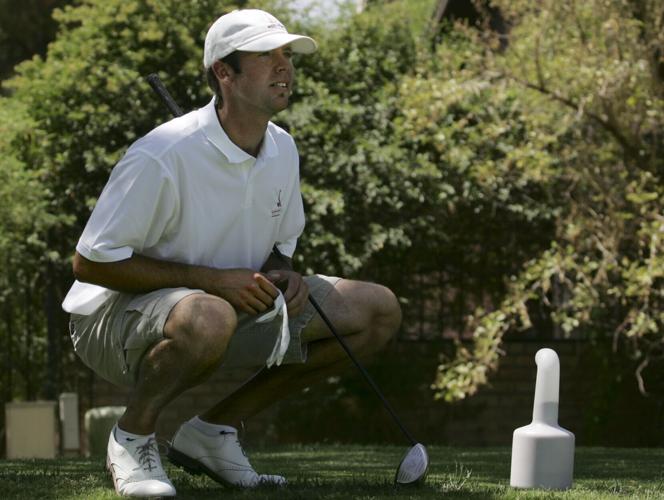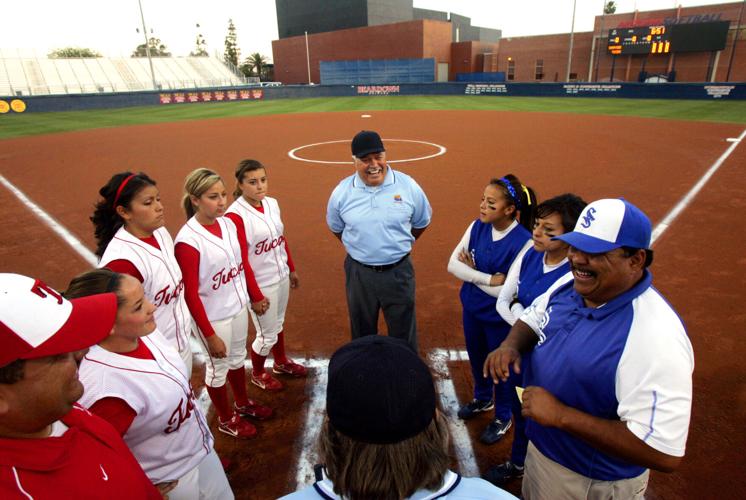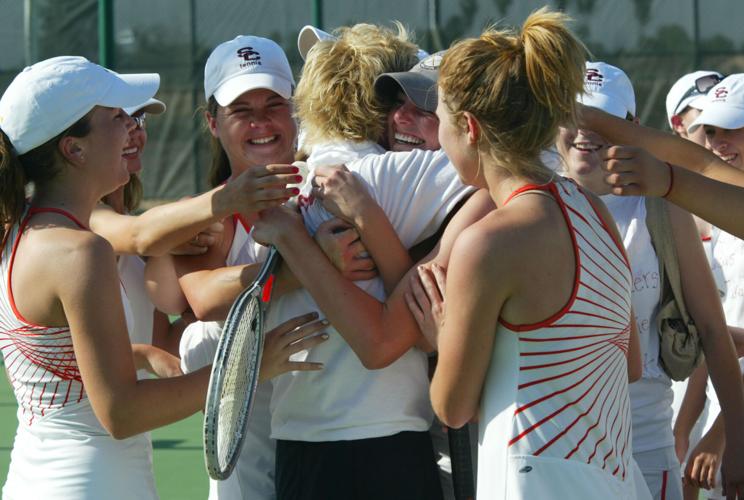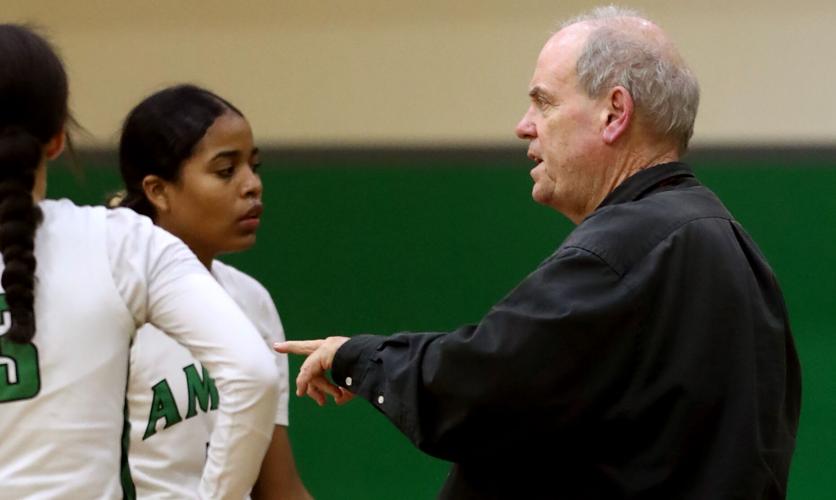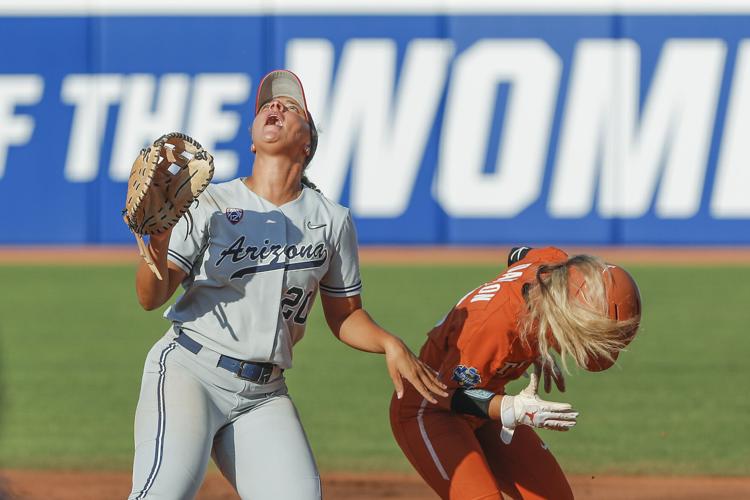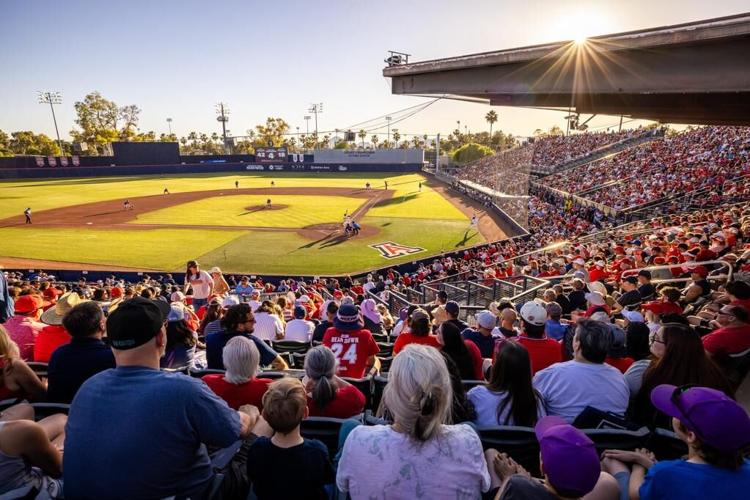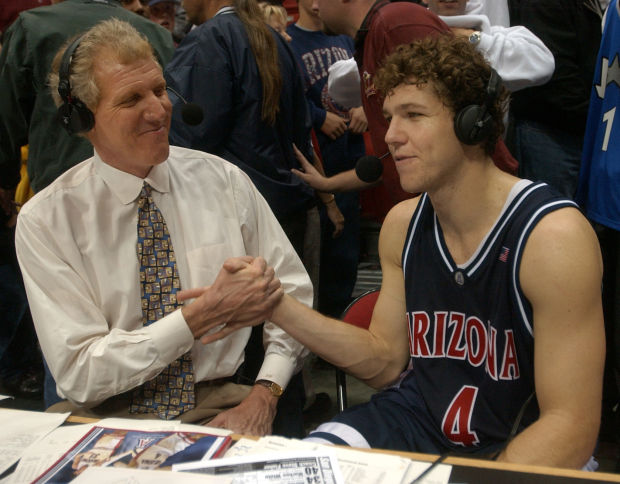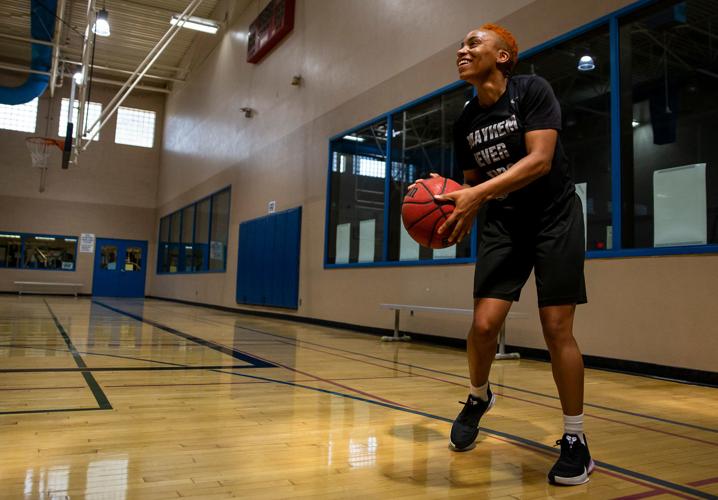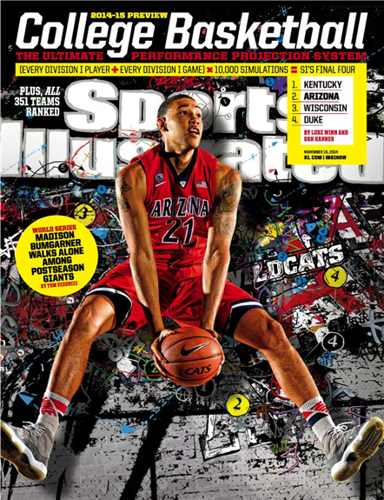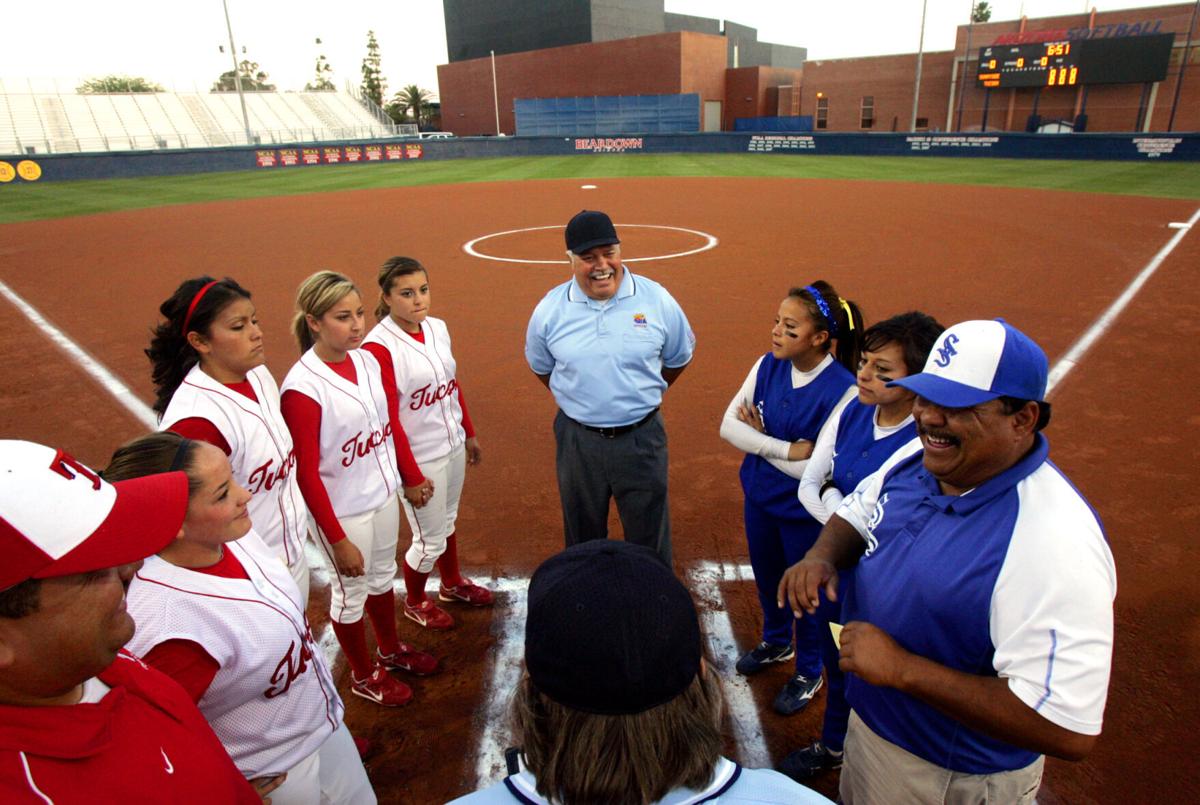The Star's longtime columnist on a local schools-focused Pima County Sports Hall of Fame class in 2024, the strangeness of a Women's College World Series without Arizona, a potential double standard when looking at Arizona, ASU's athletic financial situations and more.
School connections center stage with ’24 Pima County Sports Hall class

Greg Hansen is the longtime sports columnist for the Arizona Daily Star and Tucson.com
At the inaugural induction ceremony for the Pima County Sports Hall of Fame, 1990, there was a strong educational component.
Four of the original inductees made such an impact that Tucson schools now bear their names:
• Doolen Middle School is named after five-time Tucson High state championship basketball coach Bud Doolen.
• Hollinger K-8 School is named after Tucson's "Mr. Baseball,'' Chuck Hollinger, who coached baseball for 50 years at every conceivable level, a former UA standout.

Tucson native Rich Barcelo watches a competitors tee shot during a U.S. Open Qualifying tournament held at the Tucson Country Club on May 22, 2006.
• Gridley Middle School is named after Tucson High's five-time state championship football coach Rollin Gridley, a UA letterman.
• Secrist Middle School is named after Delbert Secrist, long-time team physician for UA and Tucson High sports teams.
The PCSHOF's Class of 2024, announced last week by president Pat Darcy, also has impressive links to Tucson schools, which was the HOF's stated mission when it began in 1990.
The Class of ’24 includes Rich Barcelo, a Sahuaro High School grad, a star golfer and basketball player under PCSHOF coach Dick McConnell in the early 1990s. But Barcelo's career goes far beyond his days as a Cougar.
In 1986, Barcelo was a leading baseball player for the International League All-Stars, a group of 12-year-olds from the southeast part of Tucson who, against all odds, reached the world championship game at the Little League World Series in Williamsport, Pennsylvania, before losing to Taiwan in a game televised on ABC.

Rich Barcelo draws a crowd as he lines up a putt on the ninth hole at the Dell Urich course at Randolph Golf Complex on Jan. 19, 2006, in the opening round of the Southern Arizona Open.
But Barcelo's most impressive accomplishment was turning the golf skills he learned as a young man playing for $5 a day in the summer youth program at the Randolph Golf Complex to a world-class level. Barcelo played on the PGA Tour for three full seasons, finishing as high as fourth, competing in the British Open and U.S. Open.
After leaving the PGA Tour, Barcelo was hired to be the director of instruction at the high-level, Tiger Woods-designed Bluejack National Golf Club in Houston. Barcelo will be inducted into the PCSHOF in November at the Reid Park DoubleTree, joined by the following:
• Bob Lacey, a Palo Verde High School grad who pitched seven years in MLB for Oakland, Cleveland, Texas and San Francisco. Lacey, who pitched for the Tucson Toros in 1975-76, led the American League with 74 appearances in 1978.
• Eric Finical, a Tucson High grad who led the Badgers to state championships in 1977, 1978 and 1979 and was considered the No. 2 swimming recruit in America. He went to Texas and led the Longhorns to the 1983 NCAA championship.
• Melinda Almazon, a Salpointe Catholic grad, an all-city volleyball and softball player, went to Colorado's Regis College, where she was a two-time Division II All-American, winning the 1998 Honda Award as her sport's top player.
• Lisa Bernstein, an all-conference catcher from Sabino High School on Mike Candrea’s first Arizona softball team, went on to be an assistant coach on Candrea's first NCAA championship team, 1991, and then was head coach of the Big Ten's Minnesota Golden Gophers from 1992-2010.

Tucson High School and Sunnyside High School captains listen to umpire Diane Cole, front, and Jerry Gastellum, rear, during the first regular-season high school game ever to be played at Hillenbrand Stadium on April 23, 2008.
• Jerry Gastellum, one of the most prolific referees in Tucson history, officiated football in the NFL, Pac-10, ACCAC, Rocky Mountain Conference and continues to officiate high school football in Tucson. Gastellum was the athletic director at multiple TUSD schools and a former coach of the year at Pueblo High School.
• Tom Danehy has coached more than 400 victories in girls high school basketball at both Amphitheater and Immaculate Heart, as well as being a successful girls tennis coach. In addition, Danehy has won 24 Arizona Press Club awards as a sportswriter and has operated a non-profit basketball league since 1988.

Amphi coach tom Danehy talks to his Panthers during a fourth quarter timeout against Pueblo in their game at Amphitheater High School on Dec. 20, 2022.
• Francie O'Leary-Haffner, of Catalina High School, was a four-time state championship swimmer and a standout at Arizona, qualifying for the 1988 Olympic Trials and making the USA National Team in 1989.
• Jim Olander, a Sahuaro High all-city outfielder in 1981, played 13 years of minor-league baseball and reached the big leagues with Milwaukee in 1991. He was the 1990 Triple-A player of the year in the American Association and has been a big-league scout for 30 years. He is still active with the Detroit Tigers.
• Virginia Pedersoli Sanchez, an Amphitheater High grad, remains the top female distance runner in Tucson prep history. She won state championships at 800, 1,600 and 3,200 meters three years in a row at Amphi and also won back-to-back state cross country titles before joining the UA track team.
• Art Menchaca of Sunnyside High School became Pima College's first All-American in any sport, as a distance runner in 1975. He competed in the Olympic Trials three times and was inducted into the NAU Hall of Fame for his distance running accomplishments in 1997.
• Susan Preimesberger was an early pioneer of girls athletics in the TUSD, coaching gymnastics and becoming a gymnastics judge, working at administrative positions at Sabino, Rincon and Palo Verde.
• Tom Tatum, one of Tucson's leading golfers, Tatum finished sixth at the PGA Qualifying School in 1977 and played in more than 10 PGA Tour events before returning to Tucson to become one of the city's foremost golf instructions at the Randolph Golf Complex and in Green Valley.

Salpointe girls tennis team players hug their coach, Perri Touche, after clinching the state 5A team tennis title on April 27, 2004, in Glendale.
• Perri Touche coached Salpointe to six girls state tennis championships from 2004-11 with an overall record of 213-16.
WCWS without Arizona seems strange
For more than two decades, one of Tucson's must-watch sports TV spectacles was the Women's College World Series. It seems almost mind-numbing now, but Arizona softball teams played in the softball World Series 22 times in 23 years from 1988-2010.

Arizona’s Carlie Scupin (20) pushes Texas’ Isabella Dayton, right, out of the way to make a catch for an out during the first inning of an NCAA Women’s College World Series matchup between the Wildcats and Longhorns on June 5, 2022, in Oklahoma City.
Since then? Three times in 14 years.
What happened? Pitching happened. Or didn't.
Arizona has had just one pitcher lead the Pac-12 in wins since Taryne Mowatt in 2007. That was Danielle O'Toole in 2016. No Arizona pitcher has led the league in strikeouts, or ERA, since ’07.
College softball is about pitching. The UA has led the league in home runs 13 times the last 17 years, but it hasn't been able to produce the next dominant pitcher — no Alicia Hollowell or Kenzie Fowler or Jennie Finch or Nancy Evans or Susie Parra.
Digest this statistic: Newbie power Stanford and its pitchers led the Pac-12 with 463 strikeouts this year. Arizona was last in the league with 207.
The lack of pitching shows in the Pac-12 standings. Since the league was expanded to 12 teams in 2012, here are the records in conference games:
UCLA 208-71
Oregon 187-96
Washington 175-105
Arizona 150-125
That was unthinkable a decade ago.
It's not just a lack of elite pitching. As has been well-documented, former UA coach Candrea's ability to grow the game — he is the acknowledged "Father of College Softball'' — reflected on Arizona's excellence but also led the SEC and Big 12 to put more emphasis on softball.
It made it incredibly more difficult just to reach a Super Regional, or be one of the nation's final 16 teams.
Over the last 10 years, the SEC has had 32 teams in the WCWS; the Pac-12 is next at 24, but it's no secret that the strength of the game has moved from the West (not including UCLA) to the South.
Will it continue? The top two high school pitchers in the Class of 2024 rankings are Addison Fisher of Bend, Oregon, who has signed with UCLA, and Audrey Lowry of Indiana, who has signed with Oklahoma.

After a brief on-air interview for ESPN, former college basketball and NBA great-turned-broadcaster Bill Walton congratulates his son, Arizona’s Luke Walton, in 2002.
Short stuff: Walton's legacy, massive Hi Corbett attendance, UA tennis in a tough Big 12
• I absorbed dozens of written tributes to Bill Walton last week. Each struck a chord. He left so many positive memories. My lasting Bill Walton memory isn't about a funny line or one of his colossal performances at UCLA. Rather, what I will remember most about Bill is walking out of the Arrowhead Pond after Arizona lost a heartbreaking 78-75 Elite Eight game to Kansas in Anaheim in 2003.
Bill walked to a waiting UA bus. There was nothing but silence. Players from the No. 1 seed Wildcats were in tears. His son, Luke Walton, who had an 18-point, 10-rebound double-double, got off the bus and embraced his father, crying on his shoulder.
I was standing maybe 10 yards away when Bill turned, wiped his eyes and said, "I love you, son. I couldn't be more proud.'' ...

Despite 6 p.m. first-pitch temps nearing 98 degrees, nearly 8,800 fans piled in to Hi Corbett Field on June 1 for Arizona’s NCAA Tournament Regional matchup with in-state foe Grand Canyon. The 8,798 official total is a single-game record for Arizona since the UA made the former MLB Spring Training and Triple-A facility its everyday home in 2012.
• The Hi Corbett Field crowd of at Friday's NCAA Regional game, Arizona vs. Grand Canyon, will be noted as the largest crowd at an Arizona home game since the Wildcats moved to the Hi C in 2012. There have been many larger crowds — in excess of 10,000 — for Tucson Toros games in the 1980s and 1990s, especially on 4th of July celebrations.
There was also a crowd of 8,736 when Michael Jordan played in an Arizona Fall League game against the Tucson Scorpions in late November 1994. Serendipitously, Jordan's manager that night was Terry Francona, the UA legend who was in the stands for Friday's loss to GCU.
The largest college baseball crowd at Hi Corbett may have been bigger than Friday night's event, but it deserves an asterisk. There were 9,817 counted as attending an Arizona-ASU doubleheader at Hi Corbett in a 1968 regular-season finale in which the Wildcats clinched the WAC title over ASU. But that counted fans over two games.

Former Pima College women’s basketball player Sydni Stallworth wants to be an inspiration to the next wave of Tucson basketball players.
• Sydni Stallworth, a Palo Verde High School grad who became a first-team NJCAA All-American point guard at Pima College in 2016 and 2017, will share her basketball knowledge with aspiring young Tucson basketball players on June 15 from 8 a.m. to noon at the Pima West Campus Aztec Gymnasium. Stallworth will teach a skills camp with ex-Tucson High standout Bailey Johnson, now a coach at Westcliff University. Stallworth is now on the coaching staff of Todd Holthaus' PCC women's team. For information on the camp: (520) 308-9237. ...

Arizona's Brandon Ashley made a regional cover of SI's 2014-15 college basketball preview.
• Former Arizona five-star basketball recruit Brandon Ashley, who started on two Elite Eight teams under Sean Miller, 2014-15, was named MVP of the Japanese B2 pro basketball league last week. Ashley, 29, plays for Chiba and averaged 16.4 points and 7.3 rebounds. Since leaving Tucson, Ashley has played in the G-League, in New Zealand, Spain, Australia, Cyprus and Puerto Rico. ...
• After finishing the season as Pac-12 champs and a Sweet 16 finisher, Clancy Shields' Arizona men's tennis team shouldn't expect Big 12 competition to be much different than the Pac-12 juggernaut of Stanford, USC and UCLA. Future Big 12 opponent TCU won the NCAA championship this year, finishing 28-4, beating No. 1 Ohio State and No. 2 Texas last month to do so.
Moreover, in the final tennisrecruiting.net rankings, future Big 12 rival UCF, has the nation's No. 3 recruiting class.

Arizona head coach Clancy Shields celebrates his No.1 doubles team’s win against Auburn in the second round match of the NCAA Men’s Tennis Tournament on the UA campus on May 4.
Shields, one of the leading recruiters in UA sports history, has a recruiting class ranked No. 5, with two top prospects from Sweden, others from Serbia, Canada and Mexico. The highest of Shields' recruits is Santiago Padilla Cote of XCeep Prep in Plantation, Florida, who grew up in Mexico.
My two cents: Athletic finance double standard for Arizona, ASU?

ASU president Michael Crow
When ASU president Michael Crow hired Graham Rossini as the Sun Devils' athletic director recently, he said that the school will remove the athletic department's debt (said to be $336 million by Sportico) and absorb it into the school's main campus.
Can you do that? Shouldn't the Arizona Board of Regents step in, especially in the wake of an $87 million UA athletic department debt absorbed by outgoing president Bobby Robbins? Isn't Crow as responsible as Robbins for alleged financial mismanagement?
"What's happened in the past was athletics was considered a separate thing, called an auxiliary enterprise," Crow said. "It's not an auxiliary enterprise anymore. It's in the core of the enterprise of ASU itself."
Huh? If nothing else, Crow is very good at double-talk.
Sportico says ASU's $336 million athletic department debt is No. 2 nationally behind Cal. Arizona's debt is listed No. 32.
Had Robbins used Crow's approach, maybe he could've spent $250 million to upgrade the west side of Arizona Stadium to match the $250 million (or more) ASU spent to re-do Sun Devil Stadium a few years ago, all of which was rolled into debt service.
Two presidents governed by the same body. Two enormous athletic debts. Two vastly different outcomes.


